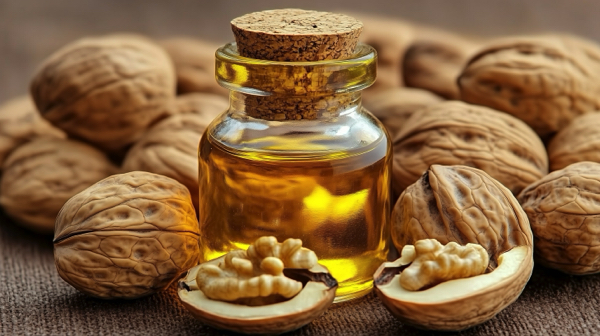The overlooked powerhouse: How vitamin K1 could transform your heart health
08/01/2025 / By Lance D Johnson

For years, vitamin K has lingered in the shadows of nutritional conversations, overshadowed by the flashier reputations of vitamins C and D. Yet, emerging research suggests that vitamin K1 — abundant in leafy greens — might be one of the best-kept secrets in heart health. A groundbreaking study tracking nearly 1,500 women over 14.5 years found something remarkable: People who consumed just one extra serving of leafy greens daily had drastically lower risks of fatal heart attacks, strokes and arterial hardening. Could something as simple as spinach or kale be the missing link in cardiovascular wellness?
Key points:
- Vitamin K1, found in leafy greens, significantly reduces the risk of fatal heart disease and stroke.
- Women with the highest intake of K1 had a 43 percent lower risk of heart-related deaths and 29 percent fewer cardiovascular events overall.
- The nutrient helps prevent arterial calcification by activating proteins that regulate calcium distribution, keeping it out of arteries and in bones.
- Just 70 micrograms more per day — equivalent to one serving of greens — makes a measurable difference.
- Vitamin K1’s benefits extend beyond heart health, synergizing with vitamin D, magnesium and calcium for optimal body function.
The science behind vitamin K1’s heart-saving magic
Unlike its cousin, vitamin K2 — which excels at bone metabolism — vitamin K1 specializes in cardiovascular protection. The key lies in its ability to activate a protein called matrix Gla protein (MGP), which acts like a traffic cop for calcium. Without enough K1, calcium can stray from bones and settle into arterial walls, leading to stiffness and plaque buildup — a condition known as arterial calcification. Over time, this can escalate into hypertension, heart attacks or strokes.
The study, published in the European Journal of Clinical Nutrition, found that women consuming around 119 micrograms of K1 daily (roughly two cups of raw kale or spinach) had 5.6 percent less arterial thickening — a major predictor of cardiovascular disease — than those eating minimal greens. Even more compelling? The protective benefits began at modest intakes. You don’t need to drown in kale smoothies; an extra half-cup of cooked spinach or a handful of arugula could be enough to tilt the odds in your favor.
But K1 doesn’t work alone. It partners with vitamin D to ensure proper calcium absorption and magnesium, which helps regulate blood pressure. Together, these nutrients form a trifecta for heart resilience. “We often focus on single nutrients, but the interplay between K1, D, and magnesium is what truly safeguards the cardiovascular system,” says Dr. Sarah Peterson, a vascular health researcher.
Leafy greens: The easiest heart medicine you’ll ever take
Popeye wasn’t wrong — spinach is a hero food. Beyond K1, greens like kale, Swiss chard and collard greens deliver anti-inflammatory flavonoids, folate and magnesium — each contributing to lower blood pressure and improved circulation. Some researchers credit these compounds for reducing oxidative stress, a major player in atherosclerosis development.
One participant in the study, 62-year-old Linda Marquez, credits her daily kale smoothie for reversing early-stage arterial stiffness. “My doctor was shocked when my scans improved within a year. I didn’t change anything except adding greens. Now my whole family eats them.”
Yet, absorption matters. Unlike synthetic supplements, K1 from food is bound to chlorophyll, requiring fat for optimal uptake. Drizzling greens with olive oil or pairing them with avocado boosts absorption significantly.
Beyond the heart: A nutrient with ripple effects
Vitamin K1’s influence stretches beyond arteries. Emerging studies highlight its role in brain health, with deficiencies linked to higher risks of cognitive decline. Some researchers speculate its anti-inflammatory effects may protect neurons much like they shield blood vessels.
Still, public awareness lags. “Heart disease remains the leading cause of death worldwide,” notes cardiologist Dr. Evan Liu. “Something as accessible as leafy greens could save millions — if people knew.”
Heart health isn’t about radical overhauls; it’s about small, consistent choices. Adding one serving of vitamin K1-rich foods — whether in a salad, stir-fry, or smoothie — could be the simplest step toward a stronger heart. As science shines a light on this overlooked nutrient, perhaps it’s time to give greens the respect they’ve long deserved.
Sources include:
Submit a correction >>
Tagged Under:
#nutrition, Anti-inflammatory foods, arterial calcification, atherosclerosis, cardiovascular disease, heart health, kale, Leafy greens, longevity, Magnesium, nutrient synergy, prevention, research, spinach, stroke prevention, vitamin D, vitamin K1
This article may contain statements that reflect the opinion of the author




















